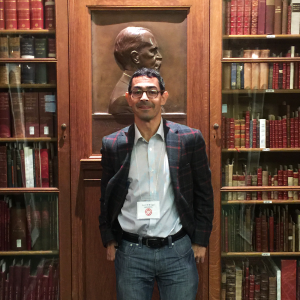Takeaway
The past three years have been difficult in healthcare and some are now doing less than we used to. Because this may be a temporary strategy, patience and understanding may be the most considerate approach.

Lifelong Learning in Clinical Excellence | January 5, 2023 | 1 min read
By Scott Wright, MD, Johns Hopkins Medicine
The healthcare professionals that I’ve worked with over the last 30 years in Canada and the U.S. have been incredible. Almost always, I’ve seen nurses, physician colleagues, and others, go above and beyond what might be expected in service of patients. This has been the norm forever in medicine–whatever the patient needs is what is done.
In recent years, “quiet quitting” has swept workforces across all industries. This trend involves employees working solely within defined work hours and doing precisely what the job requires–and no more than that. According to Gallup, “quiet quitters” now make up at least half of the U.S. workforce.
While all industries are adjusting to this new level of employee engagement, healthcare may be feeling the consequences of quiet quitting more than other fields because historically everyone just did much more than was required. At this time, in the wake of the stressor that COVID-19 has placed on the healthcare system and its professionals, some modicum of quiet quitting cannot be unexpected and may in fact be necessary for self-preservation.
Here are three ideas that relate to quiet quitting in healthcare:
1. Show gratitude.
When you notice a colleague who’s been particularly kind and giving in their work, notice their efforts and thank them for being wonderful.
2. Be understanding.
If there’s someone who’s not doing as much as they did in the past or exactly what you’re hoping for, be patient and give them a chance to turn things around.
3. Check-in.
When a coworker seems less engaged or apathetic, if they’re someone that you have a good relationship with, ask them if everything is ok and how you might be able to assist.
With the widespread workforce shortages across the healthcare professions, we all need to support each other (including and perhaps especially the quiet quitters) and work as teams to serve our patients.
This piece expresses the views solely of the author. It does not necessarily represent the views of any organization, including Johns Hopkins Medicine.

